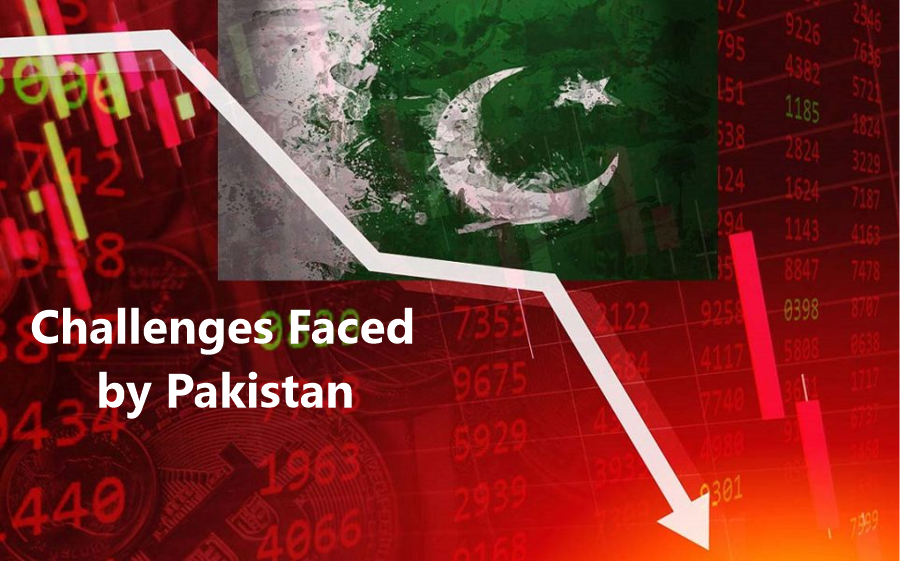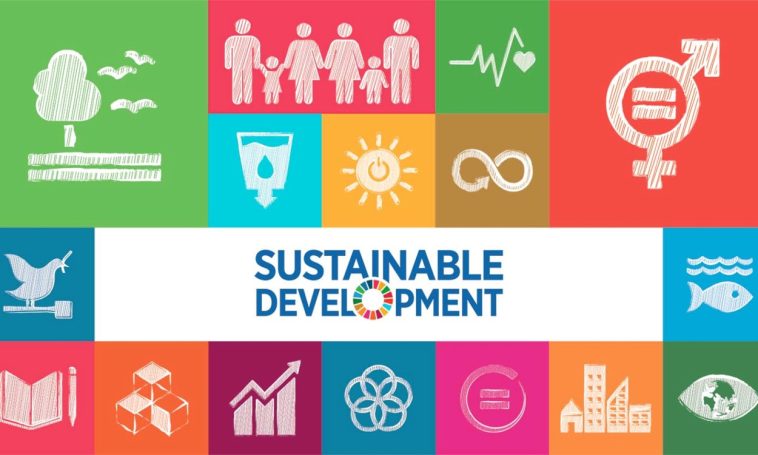The Sustainable Development Goals (SDGs) set forth by the United Nations is a comprehensive blueprint for achieving a better and more sustainable future for all. These goals cover a wide range of areas such as poverty eradication, education, health, gender equality, economic growth, environmental sustainability, and peace and justice. As a country committed to these global aspirations, Pakistan has been actively working towards achieving the SDGs and making a positive impact on its people and the planet.
Pakistan, with its vast population and diverse socio-economic challenges, recognizes the significance of the SDGs in shaping its development agenda. The country has made substantial efforts to align its policies, programs, and initiatives with the SDGs, aiming to address the pressing issues and achieve sustainable development in all spheres of society.
Read More: The Role of Tech Incubators and Accelerators in Pakistan in 2023
Explore the Contents
- 1 Understanding the Sustainable Development Goals (SDGs)
- 2 Pakistan’s Commitment to the SDGs
- 3 Progress Made by Pakistan
- 4 Challenges Faced by Pakistan
- 5 Government Initiatives and Policies
- 6 Collaboration with International Organizations
- 7 Promoting Gender Equality and Empowerment
- 8 Education and Health Initiatives
- 9 Poverty Alleviation and Economic Growth
- 10 Environmental Sustainability and Climate Action
- 11 Ensuring Peace, Justice, and Strong Institutions
- 12 Partnerships for Sustainable Development
- 13 Future Outlook
- 14 Conclusion
- 15 FAQs
Understanding the Sustainable Development Goals (SDGs)
Before delving into Pakistan’s role, it is crucial to understand the essence of the SDGs. The 17 interconnected goals address various dimensions of sustainable development, emphasizing the need for integrated actions to tackle poverty, inequality, climate change, environmental degradation, and social injustice.
Pakistan’s Commitment to the SDGs
Pakistan has shown a strong commitment to the SDGs by formally adopting them as a national agenda. The government has integrated the goals into its Vision 2025 and the 12th Five-Year Development Plan, aligning its policies, strategies, and actions accordingly. This commitment reflects Pakistan’s determination to overcome the socio-economic challenges and improve the well-being of its people.
Progress Made by Pakistan
Pakistan has made notable progress toward achieving the SDGs. In recent years, the country has successfully reduced poverty rates, improved access to education and healthcare, and enhanced gender equality. Initiatives like the Ehsaas program, which aims to alleviate poverty and provide social protection, have positively impacted millions of lives, lifting them out of poverty and promoting inclusive development.
Challenges Faced by Pakistan

Despite the progress, Pakistan faces several challenges in its pursuit of sustainable development. These challenges include socioeconomic disparities, limited resources, inadequate infrastructure, climate change vulnerability, and governance issues. Overcoming these hurdles requires sustained efforts, effective policies, and robust partnerships.
Government Initiatives and Policies
The Pakistani government has implemented various initiatives and policies to address the challenges and achieve the SDGs. It has prioritized poverty alleviation, education, healthcare, clean energy, and sustainable infrastructure development. The government’s flagship projects, such as the China-Pakistan Economic Corridor (CPEC), aim to create economic opportunities, enhance connectivity, and improve the overall infrastructure of the country.
Collaboration with International Organizations
Pakistan recognizes the importance of international collaboration in achieving the SDGs. The country actively engages with global organizations such as the United Nations Development Programme (UNDP), World Bank, and Asian Development Bank (ADB) to seek technical assistance, financial support, and knowledge sharing. These partnerships enable Pakistan to leverage expertise
Promoting Gender Equality and Empowerment
Pakistan is committed to promoting gender equality and women’s empowerment, recognizing it as a key driver of sustainable development. The government has taken significant steps to ensure equal rights, access to education, and economic opportunities for women. Initiatives like the Benazir Income Support Programmed and the Gender Parity Index in education have contributed to reducing gender disparities and empowering women in various sectors.
Education and Health Initiatives
Education and healthcare are vital components of sustainable development. Pakistan has been working towards improving access to quality education and healthcare services, particularly in rural and marginalized areas. The government has implemented reforms to enhance the education system, increase school enrollment, and improve the quality of education. Similarly, investments have been made to strengthen healthcare infrastructure, expand immunization coverage, and combat prevalent diseases.
Poverty Alleviation and Economic Growth
Reducing poverty and fostering economic growth is central to Pakistan’s development agenda. The government has implemented targeted programs and initiatives to alleviate poverty and uplift vulnerable communities. The Ehsaas program, for instance, provides social assistance, vocational training, and interest-free loans to empower individuals and families living in poverty. Furthermore, economic reforms and investment-friendly policies aim to create an enabling environment for sustainable economic growth and job creation.
Environmental Sustainability and Climate Action
Pakistan faces significant environmental challenges, including climate change impacts, deforestation, water scarcity, and air pollution. Recognizing the importance of environmental sustainability, the government has taken initiatives to address these issues. The Billion Tree Tsunami project, for example, aims to restore forests, conserve biodiversity, and mitigate the effects of climate change. Furthermore, policies promoting renewable energy, waste management, and environmental conservation are being implemented to ensure a greener and more sustainable future.
Ensuring Peace, Justice, and Strong Institutions
Building strong institutions, ensuring peace, and promoting justice are essential for sustainable development. Pakistan has been focusing on strengthening governance, promoting the rule of law, and improving access to justice. Efforts to counter corruption, enhance transparency, and protect human rights are underway to create an enabling environment that supports sustainable development and upholds the principles of justice and equality.
Partnerships for Sustainable Development
Achieving the SDGs requires collaboration and partnerships among various stakeholders. Pakistan actively engages with civil society organizations, academia, private sector entities, and local communities to drive sustainable development. These partnerships facilitate knowledge sharing, resource mobilization, and innovative solutions to address the complex challenges faced by the country.
Future Outlook
Pakistan’s commitment to the SDGs and its efforts toward sustainable development provide a promising outlook for the future. With a continued focus on poverty alleviation, education, healthcare, gender equality, environmental sustainability, and strong institutions, Pakistan aims to achieve the SDGs by 2030. However, sustained commitment, effective implementation, and continuous monitoring and evaluation are crucial for realizing these aspirations.
Read More: The Importance of Cybersecurity in Pakistan 2023
Conclusion
Pakistan’s role in the Sustainable Development Goals is significant and commendable. The country’s commitment, progress, and initiatives toward achieving the SDGs demonstrate its dedication to improving the lives of its people and creating a sustainable future. By addressing challenges, promoting inclusivity, and forging partnerships, Pakistan is actively contributing to global efforts for sustainable development.
FAQs
1. What are the Sustainable Development Goals (SDGs)?
The Sustainable Development Goals (SDGs) are a set of 17 global goals adopted by the United Nations to address various aspects of sustainable development, including poverty eradication, education, health, gender equality, economic growth, environmental sustainability, and peace and justice.
2. How is Pakistan working towards achieving the SDGs?
Pakistan has aligned its policies, programs, and initiatives with the SDGs. The government has implemented various initiatives and policies to address the challenges and achieve the SDGs. These include poverty alleviation programs, investments in education and healthcare, promotion of gender equality, environmental conservation efforts, and initiatives to strengthen institutions and promote peace and justice.
3. What are some of the key challenges faced by Pakistan in achieving the SDGs?
Pakistan faces challenges such as socioeconomic disparities, limited resources, inadequate infrastructure, climate change vulnerability, and governance issues. These challenges require sustained efforts, effective policies, and robust partnerships to overcome.
4. How is Pakistan promoting gender equality and women’s empowerment?
Pakistan is committed to promoting gender equality and women’s empowerment. The government has implemented initiatives such as the Benazir Income Support Programme and the Gender Parity Index in education to reduce gender disparities and empower women. Efforts are made to ensure equal rights, access to education, and economic opportunities for women.
5. What steps has Pakistan taken to address environmental sustainability and climate change?
Pakistan recognizes the importance of environmental sustainability and has taken initiatives to address climate change. The Billion Tree Tsunami project aims to restore forests, conserve biodiversity, and mitigate the effects of climate change. Policies promoting renewable energy, waste management, and environmental conservation are also being implemented.
6. How is Pakistan fostering partnerships for sustainable development?
Pakistan actively engages with civil society organizations, academia, private sector entities, and local communities to drive sustainable development. These partnerships facilitate knowledge sharing, resource mobilization, and innovative solutions to address the complex challenges faced by the country.



